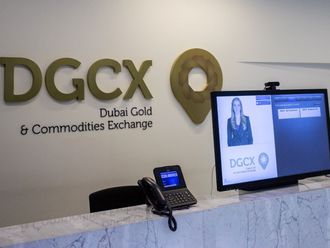
The global workforce is in the midst of a monumental shift, one that has been years in the making but accelerated rapidly in the aftermath of the pandemic. Once considered an unusual option for exceptional circumstances, remote work has become a critical element of every successful business model across industries.
A survey of working professionals in the MENA region by Bayt reveals that a staggering 92 per cent of respondents have the necessary resources to perform their job remotely, highlighting the region’s preparedness for remote work. With a robust digital infrastructure and a growing pool of highly skilled multi-national professionals, businesses from around the globe have also started taking notice of the region’s potential.
We need to harness the rising momentum of remote work.
Contractor model at the forefront
One of the biggest trends to be driven by remote work in the MENA region is the contractor model, which involves hiring individuals on a freelance or contractual basis rather than as employees. This trend is becoming increasingly popular, with approximately 89 per cent of professionals in the region planning to increase their freelance work in 2023, according to Bayt.
The contractor model allows businesses to access a wider talent pool and resources without incurring the running costs associated with hiring and maintaining full-time employees in countries where they don’t have a legal presence. At the same time, remote workers benefit from increased earning potential, thanks to the flexibility and scalability offered by the contractor model.
Rise of digital nomads
Flexible work arrangements are gaining popularity worldwide as companies recognize their benefits, leading to an increasing desire for a work-life that isn’t bound to one location. The UAE remote work visa, introduced in March 2021, has helped promote this trend in the region by allowing self-employed individuals and contractors to live and work in the UAE, while their company could be located anywhere in the world.
The UAE is at the forefront of the Arab world’s digital transformation, as demonstrated by its top ranking in the United Nations Online Service Index (OSI) in the region and eighth globally. This is partly due to the country’s investment in technology and digital infrastructure, making it an ideal hub for digital nomads.
Companies in the GCC have a competitive advantage when it comes to talent. According to the International Finance Corporation (IFC), Africa has over 700,000 qualified tech professionals, a number comparable if not larger than those in Latin America.
Most African countries are in the GST time zone, which is within three hours of many GCC countries, and English is widely spoken. Companies can take advantage of remote work and tap into Africa’s vast talent pool to further enhance their competitiveness.
Advanced machine learning
A global survey by KPMG found 89 per cent of companies have already introduced a remote working policy or are currently considering one. With the inevitable growth of remote work, it’s likely that the tools and systems that support it will also continue to innovate, with advancements in machine learning and artificial intelligence playing a key role.
Leading the charge in this revolution are tools such as OpenAI’s ChatGPT and Google’s Bard, which use machine learning to provide innovative systems that help enhance the productivity and efficiency of remote workers. ChatGPT, for example, can generate accurate and natural language responses to queries and even write code.
Addressing emerging challenges head on
The importance of cybersecurity cannot be overstated, especially when it comes to building trust in the region. While remote work does pose certain challenges in this area, companies have the opportunity to take proactive steps to protect their sensitive information and build trust with their customers, employees, and stakeholders.
With strong security measures and protocols, remote work is a secure and efficient option for companies to operate in today’s fast-paced and dynamic work environment. In fact, according to a 2022 KPMG survey, companies across Europe, the Middle East, and Africa have realized that by prioritizing cybersecurity, they can foster a culture of trust and reliability that is essential for gaining a competitive edge.
Future of the workforce
Businesses are realizing the importance of remote and hybrid work models in staying competitive in a rapidly changing marketplace. At the same time, it’s vital for businesses to adapt to the preferences and expectations of the Gen Z, who prioritize flexibility and work-life balance. To make the most of remote work, businesses should focus outcomes and KPIs over ‘presenteeism’, invest in necessary infrastructure, and provide adequate support. This approach can yield benefits of increased productivity, lower costs, and access to a wider talent pool.
For employees and contractors, remote work offers greater flexibility, a better work-life balance, and the ability to work from anywhere. As we move forward, it’s important to acknowledge that flexibility will continue to shape the future of work, and embracing its opportunities is critical for businesses to thrive in the new world.













